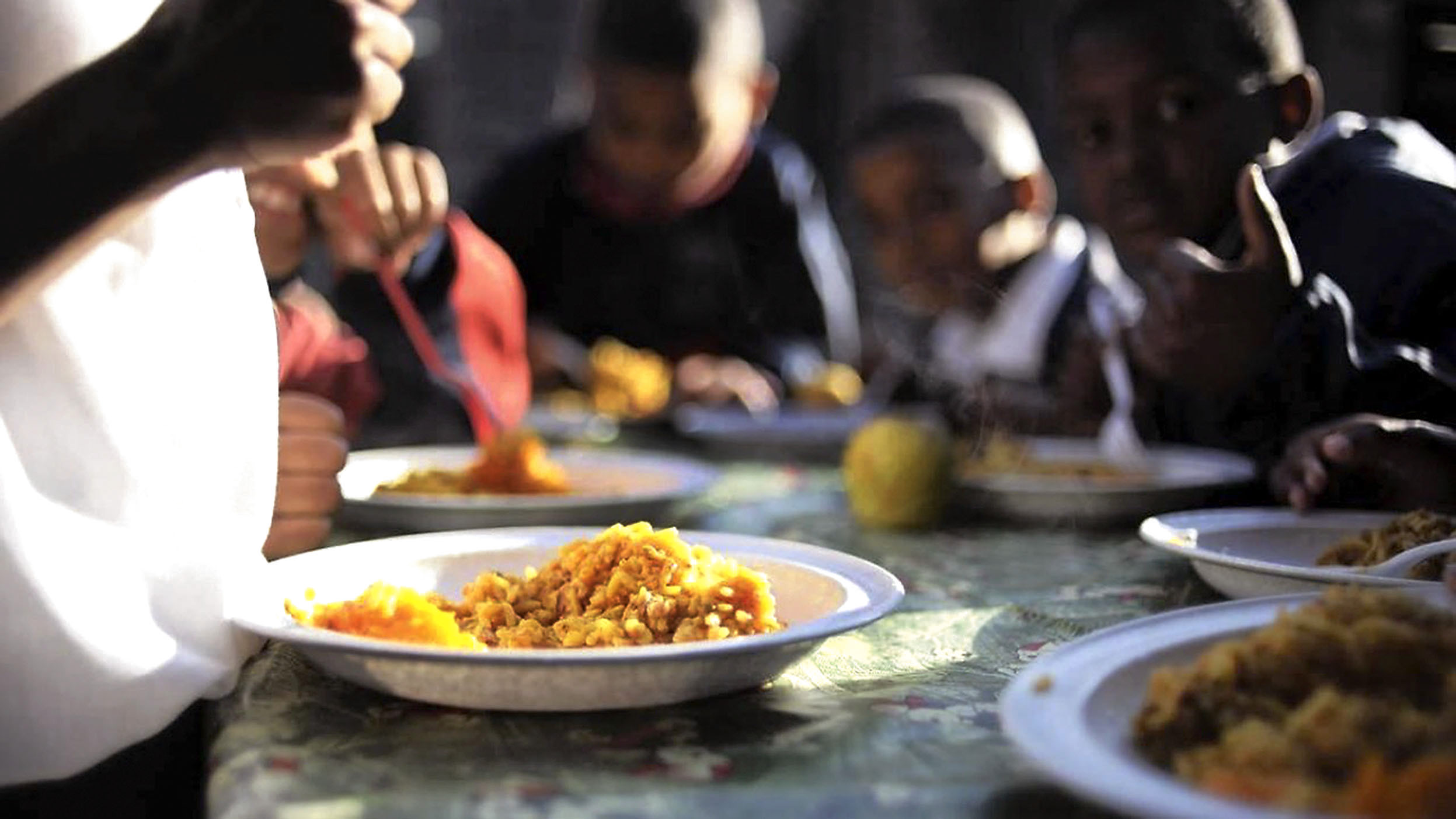The International Symposium on Global Justice and Africa’s G20 Priorities continued at the University of Cape Town (UCT) on Tuesday, 24 June 2025, proposing a programme that would advance a central ambition of the Global Alliance Against Hunger and Poverty, providing school meals for children in African countries, but also improving access to employment for locals.
The symposium seeks to ensure that Africa’s developmental voice — and its lived realities — are at the centre of G20 deliberations, helping shape a fairer, more inclusive international order.
Read more: Africa’s G20 priorities kick off with a push for climate and financial reform
School lunch programme
The session highlighted school meals as one of the most effective investments in breaking the cycle of poverty. It brought together African and global leaders to make the case for universal school feeding as a G20 priority — boosting nutrition, education, and local economies while advancing the rights and wellbeing of every child.
Global and faith leaders, along with civil society and other individuals, discussed the critical issues faced by countries across Africa, including a lack of nutrition in schools, poverty, and the impact of climate change, which has led to droughts. They said that children should be at the centre of discussion at the G20, but communities must also plant food to improve security.
"We cannot teach a hungry child. Full stomachs build full minds, and when food is grown locally and cooked locally, served with dignity, economies rise, and children will be kept happy,” said Catholic family and rights activist Mahadi Buthelezi, calling for a universal school lunch programme before Africa’s G20.
The national coordinator of Caritas Zimbabwe, Harrington Chuma, spoke about the hardships that were faced by schools in Zimbabwe after droughts hit parts of the country over the past years.
“In all these years where we’ve had these droughts… the government declared that it required about $2-billion to provide humanitarian assistance to our around seven million food-insecure Zimbabweans. And from that seven million, we had more than 1.8 million learners who were affected by the drought,” said Chuma.
The government managed to get 24% of the required funding, and “the government could only do the schools feeding programme in 20 of the 61 districts that are in Zimbabwe; that’s almost a third. We have about 6,798 primary schools, and this initiative targeted about 23% of those. So the other 77% were left to find their own means,” said Chuma.
The proposed programme supports numerous sustainable development goals by fostering an international partnership. It also encourages experience sharing and assistance from higher-income countries to lower-income nations, thereby enabling and incentivising their involvement. Such efforts aim to eradicate poverty and hunger, promote health and decent work, reduce social and economic inequalities, encourage responsible consumption and production, and ultimately cultivate fairer, more inclusive societies.
Resolving issues of hunger and poverty
Senior global policy advisor at Bread for the World, Abiola Afolayan, said that issues of hunger needed to be figured out in a timely fashion — at the Africa G20 summit in November 2025.
“We think that the Africa Day of School Feeding should include finance ministers and youth leaders signing a commitment with timelines to achieve universal school feeding… There has to be a continental commitment through the African Union countries that school feeding will be part of their national budgets,” said Afolayan.
Barriers that hinder the improvement of meals
A discussion led by the head of the Education Division of the African Union Commission, Sophia Ashipala, asked the audience to share barriers that had hindered the improvement of meals in different regions, but which could be addressed at the G20. The audience provided mixed responses.
Xolile Mkhatshwa, a delegate from Nkomazi Municipality, Mpumalanga, said that at one point she also had one meal a day. She said a lack of water was one of the barriers that contributed to food hunger.
“Our rivers are dry until now… We need to agree that we are a few years from 2030, and we’re not even in line with any of our sustainable goals. Food security speaks to availability, access and utilisation, but if we keep on giving funds at a national level, what about us at a local level?” asked Mkhatshwa.
Boitumelo Maila from Mpumalanga said the government must stop issuing contracts for food schemes because corruption was common, and children would suffer.
“I think they (governments) need to be at a point where they come to rural areas to see how much our kids are suffering, simply because their kids are not in those schools; they have all the meals that they can have in the whole world. We also need to conscientise the government to do away with the contracting of food schemes because if we do away with the contracts, I think we’ll be moving in the right direction. For example, if the tenderpreneurs are not paid, our kids don’t get food in schools,” said Maila.
Bishop Thulani Mbuyisa of the Southern African Catholic Bishops’ Conference, Department of Social Action, said that South Africans needed to start planting food themselves.
“I can speak about examples of Kenya, Zambia, Zimbabwe, and so forth, how people use a small plot of land to grow their vegetables…We’ve abandoned some of the ways that we inherited from our ancestors,” said Mbuyisa.
The G20 Leaders’ Summit in Africa will be held in Johannesburg, South Africa, from 22 to 23 November 2025. DM





 Children receive food from a school nutrition programme. (Photo: African News Agency Archives / Wikipedia)
Children receive food from a school nutrition programme. (Photo: African News Agency Archives / Wikipedia)